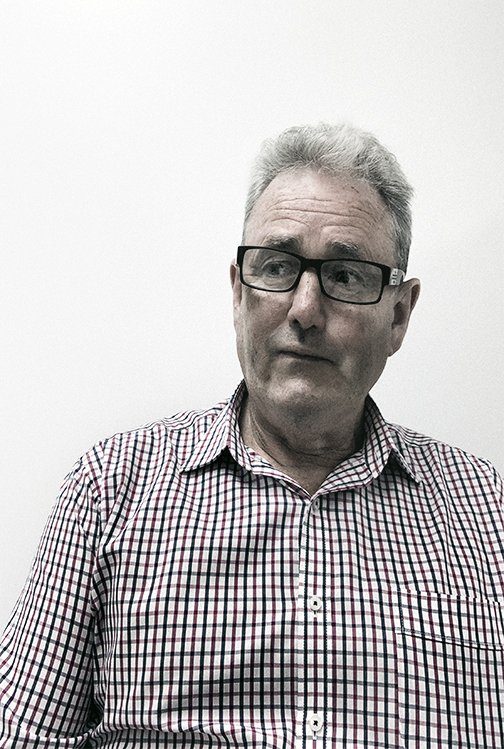THE RIGHTEOUS SIDE OF HELL
-
The Righteous Side of Hell is a project that will focus on veterans. Studies in the United States indicate that between 2 - 18% of veterans will be diagnosed with combat-related post-traumatic stress disorder*. It is commonly associated with various co-morbidities, including depression, anxiety, substance abuse, problematic anger, suicidality, and relationship dysfunction. Studies have been investigated with UK veterans who may not benefit from traditional verbal therapeutic approaches. It is suggested that art therapy can access the non-verbal operations of the brain*.
The Righteous Side of Hell will allow veterans who are struggling to articulate their emotions or communicate how they are feeling verbally through the medium of Photography and Painting, creating art that will inform the general public and show them the scars that cannot be seen. -
Mental health and its effects on soldiers are very personal topics; I was a former Australian Soldier for over a decade. In 2016, the Senior Medical Officer at Gallipoli Barracks decided that I was no longer fit for service after being diagnosed with MDD and Suicidiality and a swag of physical injuries. I had lost all hope to live, and I was sent to a psychiatric hospital for intensive psychiatric therapy.
Whilst I was there, I started using my camera as a meaningful coping strategy, and I had also started to paint, do colouring books, and make trinkets for other veterans. I found this to be a sound coping strategy when times were getting tough.
I had trouble articulating exactly how I was feeling, but somehow I could express my guilt, anger, sadness, resentment, pain, and happiness through the use of art.
This has motivated me to now help those soldiers who have been through what I have and help them develop a toolkit of healthy and constructive coping strategies and express themselves through the medium of photography and painting, thus the birth of The Righteous Side of Hell. -
"The Righteous Side of Hell" will be a collaboration between myself, the photographer and volunteering veterans.
Taking photographs during a pandemic and lockdown poses challenges and heightens veterans' emotional states. For my first series, I will be using the Shutter application, which will allow me to remotely access the veteran's camera on their phone, allowing them to be in a place of their choice that makes them feel comfortable during the photo shoot.
I intend to travel to those veterans locally (Melbourne) to photograph and continue to work remotely using the application Shutter for interstate and international veterans.
I will make prints from these portraits, and give them to the veteran. The veteran can do their part in the collaborative process and paint their feelings, thoughts, and emotions onto the portrait. The paint will be open to them and how they apply it to the portrait to freely express whatever emotions they have hidden and bottled inside them from a life of service.
-
Bailey, J., 2021. Systematic review of screening for PTSD in military and police personnel using general self-report measures of depression, distress, anxiety, and alcohol use.
Creamer, M., Morris, P., Biddle, D. and Elliott, P., 1999. Treatment outcome in Australian veterans with combat-related posttraumatic stress disorder: A cause for cautious optimism?. Journal of Traumatic Stress, 12(4), pp.545-558.
DeLucia, J. and Kennedy, B., 2021. A veteran-focused art therapy program: co-research to strengthen art therapy effectiveness. International Journal of Art Therapy, 26(1-2), pp.8-16.
Nursey, J., Sbisa, A., Knight, H., Ralph, N., Cowlishaw, S., Forbes, D., O’Donnell, M., Hinton, M., Cooper, J., Hopwood, M., McFarlane, A., Herring, S. and Fitzgerald, P., 2020. Exploring Theta Burst Stimulation for Post-traumatic Stress Disorder in Australian Veterans—A Pilot Study. Military Medicine, 185(9-10), pp.e1770-e1778.
Palmer, E., Hill, K., Lobban, J. and Murphy, D., 2017. Veterans’ perspectives on the acceptability of art therapy: a mixed-methods study. International Journal of Art Therapy, 22(3), pp.132-137.
Quaglietti, S., 2018. Using Photography to Explore Recovery Themes With Veterans. Journal of Creativity in Mental Health, 13(2), pp.220-230.
Seal, K., Metzler, T., Gima, K., Bertenthal, D., Maguen, S. and Marmar, C., 2009. Trends and Risk Factors for Mental Health Diagnoses Among Iraq and Afghanistan Veterans Using Department of Veterans Affairs Health Care, 2002–2008. American Journal of Public Health, 99(9), pp.1651-1658.








